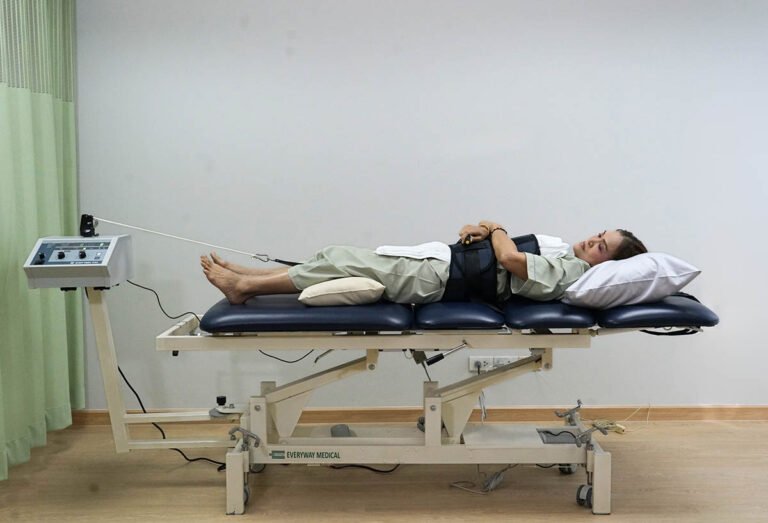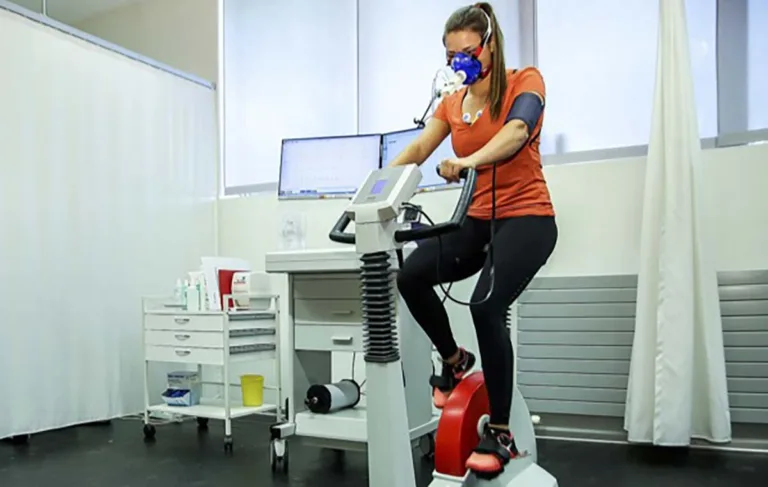Cardio Pulmonary Exercise Testing (CPET)
Cardiopulmonary exercise testing (CPET) is a sophisticated multidimensional assessment tool in healthcare that reveals the complex interactions between the cardiovascular, pulmonary, and musculoskeletal systems during exercise. This non-invasive diagnostic method goes beyond traditional assessments to dynamically assess a person’s athletic ability and gain insight into their physiological response to activity.
By measuring key parameters such as oxygen consumption, carbon dioxide production, and heart rate, CPET provides clinicians, including physical therapists, with a comprehensive understanding of a patient’s cardiorespiratory function.
CPET is widely used in clinical and research settings and plays a central role in guiding therapeutic interventions, designing personalized exercise programs and optimizing rehabilitation strategies in people with various cardiovascular and respiratory diseases.
Beneficial Diagnoses for CPET
- Cardiovascular Diseases
- Coronary artery disease
- Heart failure
- Valvular heart disease
- Respiratory Conditions
- Chronic obstructive pulmonary disease (COPD)
- Asthma
- Interstitial lung disease
- Exercise-Induced Symptoms
- Unexplained dyspnea (shortness of breath) during exertion
- Exercise intolerance without an obvious cause
- Pre-operative Assessment
- Evaluating fitness for surgery, especially in high-risk cases
- Cardiopulmonary Rehabilitation
- Monitoring and assessing progress during rehabilitation programs
- Occupational Health Assessments
- Assessing cardiopulmonary fitness in certain occupational settings
- Evaluation of Exercise-Induced Symptoms
- Investigating the cause of symptoms such as chest pain, palpitations, or fatigue during exercise
- Sports Medicine
- Assessing athletes’ cardiopulmonary fitness and identifying any limitations
- Evaluation of Exercise Prescription
- Tailoring exercise programs for individuals with chronic conditions
- Metabolic Conditions
- Evaluating exercise capacity in individuals with metabolic disorders
- Neuromuscular Disorders
- Assessing functional capacity in individuals with certain neuromuscular conditions
- Post-transplant Monitoring
- Monitoring cardiovascular and pulmonary function post-heart or lung transplant
*All diagnoses include but are not limited to the above.
Benefits of CPET
-
Comprehensive Assessment: CPET provides a holistic evaluation of cardiovascular, respiratory, and musculoskeletal systems, offering a thorough understanding of how these systems interact during exercise.
-
Objective Measurement of Exercise Capacity: CPET objectively measures parameters such as peak oxygen consumption (VO2 max), anaerobic threshold, and exercise duration, providing quantifiable metrics of an individual’s exercise capacity.
-
Identification of Limiting Factors: CPET helps identify the specific factors (cardiovascular, pulmonary, or musculoskeletal) that limit exercise performance, aiding in the diagnosis and targeted management of various conditions.
-
Differential Diagnosis: CPET assists in distinguishing between cardiac, pulmonary, and deconditioning-related causes of exercise intolerance, contributing to a more accurate diagnosis and tailored treatment plan.
-
Risk Stratification: CPET can help stratify risk in individuals with cardiovascular diseases, providing valuable information for prognosis and guiding decisions about interventions and therapeutic strategies.
-
Pre-operative Assessment: CPET is used to assess a patient’s fitness for surgery, particularly in high-risk cases, helping healthcare professionals make informed decisions about the appropriateness of surgical procedures.
-
Exercise Prescription: CPET results guide the formulation of personalized exercise prescriptions, enabling physiotherapists and healthcare providers to design targeted rehabilitation and training programs.
-
Monitoring Rehabilitation Progress: CPET is valuable in monitoring the effectiveness of cardiopulmonary rehabilitation programs, allowing for adjustments based on the patient’s response to exercise interventions.
-
Sports Performance Assessment: CPET is used in sports medicine to assess the aerobic fitness and exercise capacity of athletes, aiding in training optimization and performance enhancement.
-
Research and Clinical Trials: CPET is employed in research settings and clinical trials to gather data on exercise physiology, treatment efficacy, and the impact of interventions on cardiopulmonary function.
-
Functional Capacity Assessment: CPET provides insights into an individual’s functional capacity, helping to gauge their ability to perform activities of daily living and assessing the impact of cardiopulmonary conditions on overall quality of life.
-
Data-Driven Decision-Making: The objective data obtained from CPET supports evidence-based decision-making in the management of various cardiovascular and respiratory conditions.
-
Patient Education: CPET results can be used to educate patients about their exercise capacity, limitations, and the importance of physical activity in managing their health.
*Disclaimer: The listed treatment options are for reference and should be discussed with your physiotherapist. Always consult with your healthcare provider before starting any new therapy or exercise, as individual suitability depends on your health condition and their assessment.





